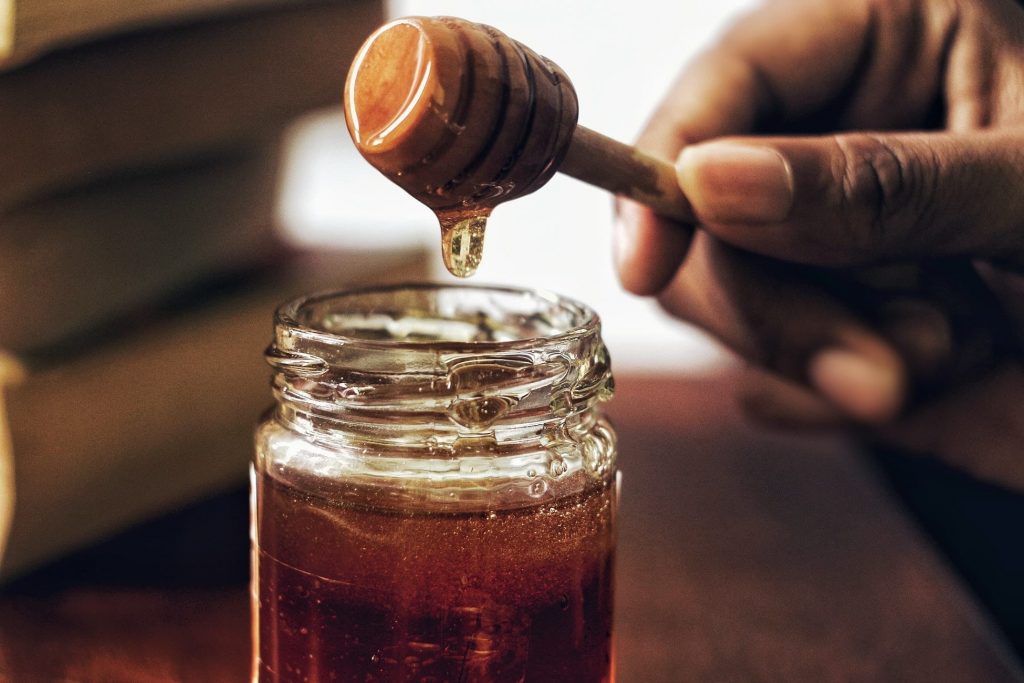Honey is one of the most delicious natural foodstuff you’ll find. It’s never advisable that you steal it straight out of a beehive, however, there are plenty of ways you can sample the delicious, sticky sweet stuff. But just how healthy is honey on the whole?
In this quick fact file, we are going to look at the facts on honey nutrition, and we will also consider why honey is likely to be a great addition to any diet.
1. Honey’s not packed with protein or fat.
Honey is virtually devoid from fat, though it is also free from protein and fibre.
2. It’s a detox choice.
Honey is very popular with people going through detox diets. That’s because it is a fantastic natural source of antioxidants. This means that it may be useful in the fight against heart disease, cancer and eye disease.
3. It’ll beat back the bugs.
Honey is popular for being a natural antibiotic. It is popularly used to help treat wounds, as well as to stir into drinks to help soothe coughs, colds and flu bugs and viruses.
4. It’s a very sugary treat.
However, honey is also very high in sugar. You can expect to find 17g of sugar in any tablespoon of honey. Therefore, you will need to go sparingly if you wish to introduce it into your diet.
5. Honey helped early medicine.
It is thought that honey was popularly used in medicine for many years thanks to its natural antibiotic properties. However, thanks to the rise of modern antibiotic creation, honey fell to the wayside. As there continues to be worries rising over antibiotic resistance, honey has now re-emerged as a natural solution for many concerns.
6. Many people bathe in honey.
Honey is also thought to have many benefits for the skin and hair. It’s a natural lubricant and can also help to moisturize. That is why you’ll find the ingredient in many shampoos, bath products and more besides.
7. It’s unlikely to spoil.
Honey can last for many years. Thanks to its medicinal nature, honey is very unlikely to go bad. There is some honey that you can eat safely after centuries of storage. Honey doesn’t generally spoil – it hardens, thickens and crystallizes.
8. You could help your heart.
Honey is also thought to be very helpful in reducing cholesterol levels as well as blood pressure. Therefore, anyone at risk of heart attacks and heart disease may benefit from a diet rich in the substance.
9. But, go sparingly.
As much of the calories found in honey come from sugar, eating too much could lead to weight gain over time.
10. The salt content is high, too.
Honey is also relatively high in sodium, meaning those people on low-salt diets should think carefully before consuming too much.
11. It’ll help your teeth and bones.
However, honey is rich in fluoride and calcium, meaning that despite its high sugar content, its mineral makeup may actually benefit your long-term oral health.
12. It could stop your cough.
Honey may also be a great cough suppressant, particularly in children who are prone to catching bugs and colds. Honey is often a great substitute for many counter medicines, as it comes with next to no side effects.
13. Catch some Zs!
Honey can also help you sleep – why not put a little in your hot drink before you go to bed?
FAQs about Honey
Can honey help you gain weight?
Yes, thanks to its high sugar content - but it’s likely to cause sugar crashes. There are healthier ways to gain weight!
Can honey harm your hair?
No - in fact, many people use honey in their hair to help keep it moist and reduce inflammation of the scalp.
Is a spoonful of honey per day a bad thing?
Not necessarily - but due to the sugar content, always go sparing on this natural resource.
Do you know any fun facts about honey nutrition? Share them in the comments below!
